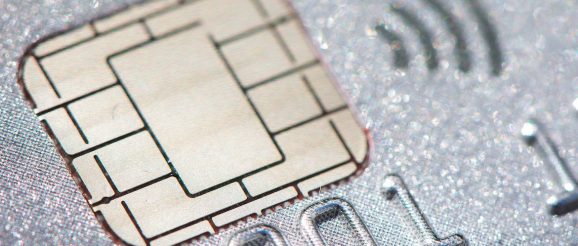Banning Cashless Establishments Wrong Move to Help Unbanked Americans – Center for Data Innovation

This week Rep. Nydia Velázquez (D-NY) introduced the Preserving Cash for Transit Access Act, legislation that would require transit agencies that receive federal funding to accept cash at each station and be staffed by workers who accept cash. This bill was a response to New York’s Metropolitan Transportation Authority (MTA) announcing that it would not resume taking cash at booths, a change it made last year at the beginning of the pandemic. (In response to initial public backlash, MTA has since backtracked on its announcement.)
But transit is just one of many places that are increasingly moving to cashless transactions because of the efficiency and convenience offered by digital payment technology. When Sweetgreen, a fast-casual salad chain, moved to cashless payments, associates completed 5 to 15 percent more transactions per hour. Similarly, cashless payment technology increased productivity and enabled greater price flexibility at Atlanta’s Mercedes-Benz Stadium, resulting in lower prices for consumers as merchants no longer had to use a whole-dollar pricing model, which was necessary for fast transactions.
Moreover, digital payment technology makes businesses safer. Washington, D.C. barbeque hotspot Hill Country decided to go cashless after burglars targeted the restaurant four times over the course of three months. A lack of cash on store premises protects consumers and businesses alike from these financial crimes.
Unfortunately, some parts of the country are passing laws that prevent businesses from moving to fully digital payment systems by requiring them to accept payment for goods and services in cash. Their intention is to protect the approximately seven million households in the United States who are unbanked and do not have access to basic financial services. However, these misdirected efforts would not help unbanked Americans, but would raise prices and stifle retail innovation, including by banning cashless stores. Instead, policymakers should introduce legislation that facilitates access to financial services and enables participation in a technologically advancing economy.
Federal lawmakers considered two bills towards this effect in the 116th Congress. Introduced by Rep. David Cicilline (D-RI), the Cash Should Always Be Honored Act would prohibit physical retail establishments from refusing to accept cash for goods or services for sale. Another bill, the Payment Choice Act of 2019, introduced by Rep. Donald Payne (D-NJ), would take the ban a step further by also prohibiting businesses from posting signs that cash is unacceptable or charging a higher price to customers who pay with cash. Several state and city governments, from Colorado to Washington, D.C., have followed suit with similar laws that block businesses from refusing cash payments.
Banning cashless stores does little to address the underlying reasons for unbanked consumers. In an FDIC survey, almost half of surveyed unbanked households cited minimum balance requirements as a reason for not utilizing bank services, followed by bank trustworthiness, account fees, a lack of personal identification, credit, or bad experiences with a former bank.
There are a number of steps policymakers should take to make banking more accessible.
First, policymakers can make it easier for individuals to open a bank account, including by using online banking and mobile banking, by offering affordable access to electronic identification so consumers can securely and efficiently prove their identity online. Second, policymakers can address two of the biggest barriers to accessing financial services by prohibiting banks from requiring minimum balances or account fees over a certain amount.
Moreover, state and city governments can expand access to card payments by allowing residents to add cash to electronic benefit transfer (EBT) cards. EBT cards work like a debit or credit card but use government benefits instead of cash to purchase limited goods. Permitting consumers to load cash onto their EBT cards transforms the cards into prepaid debit cards and enables participation in cashless transactions without a bank account. Likewise, consumers can purchase prepaid debit cards from retailers to conduct cashless transactions independent of local governments.
Finally, Congress can take steps to lessen the digital divide. As more financial services move online, consumers need technological resources to participate in banking via smartphones. Policies to support mobile phone ownership for low-income households would help both unbanked consumers and the general population.
Cashless stores do not cause unbanking, and banning their existence does little to help those with unmet banking needs. Instead, policymakers should focus on bridging the gap between unbanked households and financial services.
